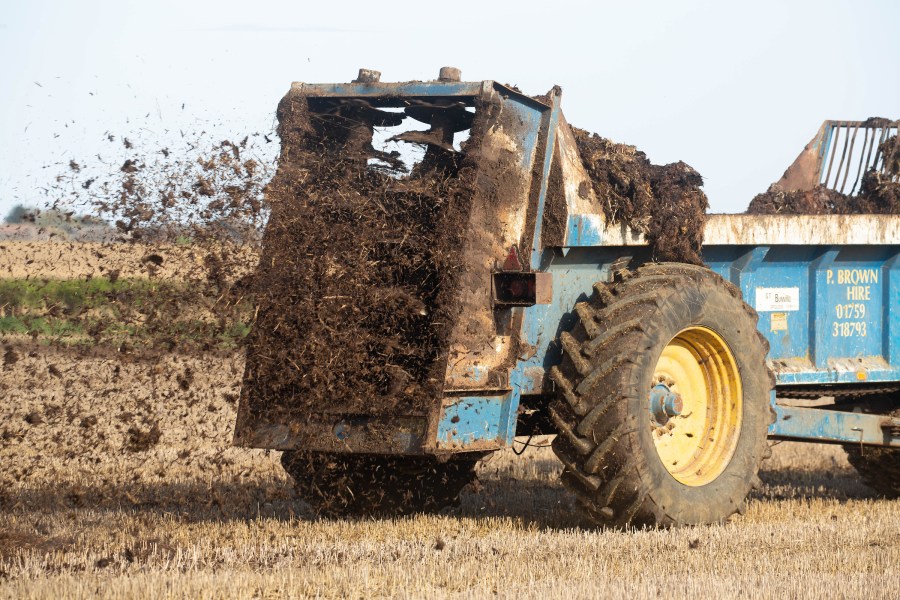Emissions from soil of the potent greenhouse gas nitrous oxide can be drastically reduced just by adding carbon-rich manure, new research shows.
According to researchers from Rothamsted Research, doing so essentially ‘locks-in’ nitrogen as it’s no longer turned into as much nitrous oxide gas by microbes such as fungi and bacteria.
The Rothamsted-led study, published last month (21 December) in the journal Nature Food, showed that arable soils receiving such inorganic fertilisers were found to retain only half the amount of nitrogen compared to soils receiving farmyard manure, with the losses mainly in the form of nitrous oxide gas.
Revealing data
And the data strongly suggest this is because carbon and nitrogen are inexorably linked within soils – and to a much greater extent than ever realised.
Previous Rothamsted-led research showed how carbon plays a key role in determining the very structure of soil, and subsequently, how it functions.
Professor Andrew Neal and colleagues found that increasing the organic matter in soils leads microbes to secrete sticky polymers that produce a well-connected network of relatively small pores.
They have now shown that it’s this structural feature of soil that also determines the fate of soil nitrogen.
Climate change potential
“Our latest findings shows that its organic matter’s impact on soil structure that influences how nitrogen is metabolised in soils. Greater pore connectivity in carbon-rich soil allows air to circulate and means microbes are metabolising nitrogen in such a way as to reduce nitrous oxide emissions,” says Andrew.
“This means wider application of organic matter in arable systems has the potential to reduce nitrous oxide emissions and agriculture’s contribution to climate change.”




